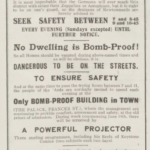Military History Carnival #23 has been posted at The Edge of the American West and H-War. My eye was immediately drawn to a post (more of an article, really) on the Greco-Bactrian Kingdom at Sparta: Journal of Ancient Spartan and Greek History. This was a remnant of Alexander the Great’s conquests in central Asia in the 3rd and 2nd centuries BC, which was mostly Hellenistic in culture but also incorporated local influences. I’ve always found the Greco-Bactrians fascinating; one day I’ll have to learn more about them.
I neglected to take note of last month’s Military History Carnival 22 at Thompson-Werk. I recommend The Edge of the American West’s own post on the wit and wisdom of Richard M. Nixon (though for genuine wit and and perhaps wisdom, he’s not a patch on Australia’s own Paul J. Keating).
![]() This work is licensed under a Creative Commons Attribution-NonCommercial-NoDerivatives 4.0 International License.
Permissions beyond the scope of this license may be available at http://airminded.org/copyright/.
This work is licensed under a Creative Commons Attribution-NonCommercial-NoDerivatives 4.0 International License.
Permissions beyond the scope of this license may be available at http://airminded.org/copyright/.





Moda Sattva, an Indian scholar (enthusiast?) is pushing the argument that the early Greco-Bactrians are the people we vaguely know in history as Mauryans. The key claim is that Diodotus I is the same person as the Emperor Ashoka, the Devadutta.
He’s admittedly picked some strange an inappropriate places to publicise his theories (blogs, Wikipedia), but he may also be having trouble gaining traction in Indian academe.
http://controversialhistory.blogspot.com/2008/05/who-is-diodotus-greek-myth.html
Here’s a somewhere more articulate and over-argued version: http://www.ranajitpal.com/asoka.html
Thanks, it’s an interesting idea, and makes sense based on what I know of Indian history (i.e. next to nothing). And it’s no more poorly written than the post I linked to …